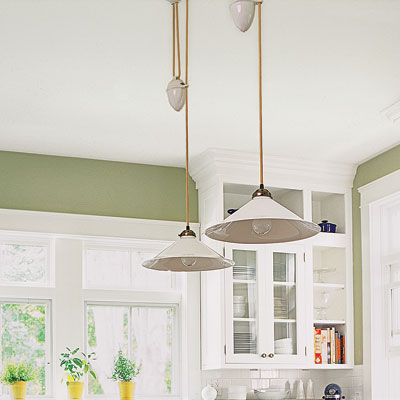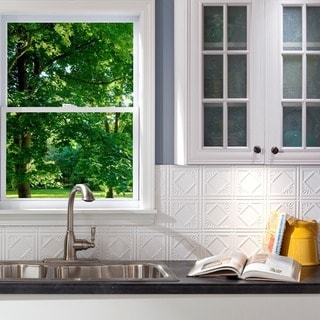[ad_1]
It is a scheme developed to assistance much more folks get properties but the likely draw back could see a lot of Aussies having difficulties to make ends meet.
The government has introduced a large change to the Home Assure Scheme. It will now assist folks invest in even much more expensive homes with only a 5 for every cent deposit. What you can devote has long gone up. The restrict is now $900,000 in Sydney, for instance $450,000 in regional Tasmania and amounts in concerning for the rest of the nation.
This is risky! We will explore beneath, but to start with we will admit there’s some fantastic in this idea.
It ought to motivate property creating, particularly in the locations.
House price ranges in the bush have long gone up a ton, and the price of inputs far too. World-wide lumber selling prices are triple what they had been pe-pandemic, for instance.
Since the Household Ensure Scheme applies to new residences, larger input prices issue. Growing the rate restrict for new properties need to make builders sense more cozy about acquiring customers for new homes.
In the final year, with home prices increasing so speedy, lots of people today will have observed their deposit shrink as a percentage of the home they’d like to acquire.
Persons who wanted to acquire a $500,000 household and experienced $100,000 saved (a 20 for each cent deposit), noticed that home go up to $600,000 in the final 12 months. They now have to have $120,000 saved to have 20 for each cent deposit.
They may even have scrimped and saved $15,000 excess in the previous yr but their deposit is continue to not 20 for every cent. Elevating the dwelling rate limit to include the new, bigger price of the residence aids them. Individuals individuals now will not have to get Lender’s Mortgage Coverage which fees hundreds of pounds.
So where’s the draw back? Why could this be a poison tablet?
The solution is that the govt is herding people today into the housing sector just right before it is forecast to fall. Think about you get the $600,000 property, you experienced a 5 per cent deposit ($30,000) so you owe $570,000. Then the market falls 10 per cent. You now owe $570,000 on a dwelling worth $540,000. Ouch.
Heading underwater
Bankers like to communicate about LVR: Mortgage-to-value ratio. But we’re going to communicate about currently being over water (owing the banking companies significantly less than your home is value, i.e. LVR under 1) and remaining underneath h2o (owing more than your household is worth, i.e. LVR about 1).
At the instant, just about every borrower in Australia is earlier mentioned water, as the subsequent graph exhibits. 99.75 per cent of loans are previously mentioned water, up from 97.5 for each cent at the start of the pandemic. (“In detrimental equity” suggests below drinking water). Which is excellent. Fantastic for borrowers. Terrific for financial institutions.
What is much more, many persons have used small interest premiums to get in advance on their household personal loan. Assistant Treasurer and Minister for Housing Michael Sukkar details out that 41.8 per cent of plan-backed loans are in progress of their scheduled repayments and 58.2 for each cent are on program.
“The Property Ensure Plan has not professional any defaults to date,” he stated by email.
Why? Yes, people today have been paying off their mortgages. But a greater cause is home rates have been racing up. You borrowed $420,000 to buy a dwelling value $500,000, the home is now truly worth $550,000, you’re very well above h2o. You really feel excellent.
What takes place if house price ranges go the other way? LVRs begin hunting worse and people today go below drinking water.
Who goes less than drinking water 1st?
– Newest customers
– Persons with the smallest deposits
i.e. just the people who are shopping for underneath the Household Promise scheme. This is the threat.
If you had a 5 for every cent deposit and borrowed 95 for every cent of the worth of your dwelling, what happens if your property right away goes down in benefit by 6 for each cent? You owe the bank far more than the residence is well worth.
Home charges are forecast to fall additional than that though. Commonwealth Financial institution predicts an 8 per cent fall. (While to be truthful there is a likelihood the Dwelling Promise Plan by itself aids prop up residence price ranges and can make such a drop much less probable. I asked the government if they’d accomplished any modelling on this probable influence and they did not reply the issue.)
In the worst case circumstance, 1000’s of punters are lured into the costly aspect of the housing industry just in time to go below water. They can borrow substantial sums – up to $855,000 in Sydney – just as fascination prices are forecast to go up and property prices are forecast to go down.
“These better value caps will assist additional people today realise their desires and lock in a stronger foreseeable future for by themselves,” said Prime Minister Scott Morrison this 7 days as he strode the campaign trail.
Folks will certainly be locked in, and for a great deal extended than the duration of a political job. Regardless of whether they are locked in to a dream or a nightmare relies upon on what comes about to house charges and the overall economy.
Of study course, the financial institutions have a large part to perform below too. The government’s not forcing them to lend to people. They want to carry on to lend responsibly.
I sent NAB an email asking if they have been fearful about prospects going underwater. The reply provided this: “It is not in customers’ interests to borrow income which they are not able to manage to repay,” reported NAB govt Ben Nicholls. “ … which is why NAB will assess a customer’s skill to repay their bank loan by thinking about their earnings, costs and all round indebtedness.”
Stare intently at that response. There is can be a variance concerning borrowing additional than you can repay (lender hates this) and owing a lot more than the property is well worth (buyer hates this).
Respiration underwater
How poor is it to be beneath water? Relies upon who you inquire.
For the unique who is under drinking water, it is terrible information. They would in all probability have been much better off waiting around to purchase. But it does not ordinarily trigger a mass housing collapse.
Research shows that dutiful Aussies continue to keep plugging away at their mortgages even if they owe extra than the property is really worth. We never default on our house loans conveniently – our technique is diverse to America exactly where they just hand the keys back to the lender. Which is excellent for monetary stability due to the fact it helps prevent financial institutions marketing residences in a large fireplace sale that pushes property selling prices down additional.
Of course, at times people today do default on their dwelling financial loans. If persons owe far more than the dwelling is truly worth and their life turns to custard – severe ailment, injury, disability, divorce, laid off – then they may possibly default.
If you fulfill each disorders, decline of earnings and owing additional than the household is really worth – you’re at chance of foreclosure.
You could have observed a few of the possibility components just outlined – likely underwater on your personal loan and shedding your job – could be correlated. Which is appropriate. A large financial drama could induce equally falling property selling prices that press lots of us under water at the identical time as producing mass lay-offs. That is the state of affairs the RBA fears most, because it could result in superior stages of housing default that exacerbate the scenario additional.
It is been mad to predict home price tag falls in Australia in the last 30 several years. I confess I have elevated the alarm improperly myself a couple of times. But never ignore some points move in quite very long cycles.
Curiosity rates have been falling on average since 1990, from 17 per cent to .1 for each cent now. Up coming, they are expected to rise. Possibly home costs will continue to keep going up irrespective? Persons who get in to the sector by means of the New Household Guarantee will certainly be hoping so.
Jason Murphy is an economist | @jasemurphy. He is the creator of the book Incentivology.
[ad_2]
Source connection





































